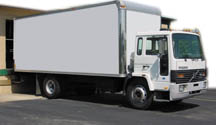A modest investment in managing this arena can add 2-4 points to your profit margin.

Larger Retailers Have the Opportunity To Consolidate but smaller non-competing furniture retailers can also save by combining their transportation buying power.
When was the last time you thoroughly reviewed your inbound transportation management procedures? You may be surprised at the amount of money you are losing and the hidden additional costs resulting from damage and poor service. A modest investment in managing this arena can add 2-4 points to your profit margin. There are opportunities if your total annual sales are only a million dollars and even greater savings potential for larger retailers.
The first step in controlling freight service is to measure your activity and associated costs. You can start this process by creating a spreadsheet covering all receipts for a month or more. It will show all the receipts by date, and a detailed account of goods shipped from each shipping location along with cost and damage information (see Figure 1 on page 8). You may be surprised how many trucks come to your door from factories that are pretty close together. Hopefully, most of the shipments will be handled by carriers that understand furniture, so damage will be minimal. Using these specialized furniture carriers is absolutely essential if you want to achieve good customer service.
Larger retailers that receive many shipments have the opportunity to consolidate in North Carolina or Southern California, for example, and ship full truckloads to their warehouse. Smaller retailers can do the same thing with volume LTL or stop-off trucks. We have seen wonderful programs where non-competing furniture retailers in an area combine their transportation buying power and use the same carrier or carriers. The desired service standard is to have a minimum of two receipts each week with an email or fax in advance of arrival so you can plan accordingly. This provides a real advantage. You have fewer trucks coming to the door and receive better quality service.
It’s a simple process. The carrier picks up for multiple retailers at each factory and then sorts goods at his cross dock for efficient delivery to specific retail stores. Added benefits can be achieved if the same drivers deliver every week, so they become familiar with retailers’ needs.
Manufacturers’ freight programs range from outstanding to poor. If your merchandise is delayed while they are accumulating enough merchandise orders to go to your area, customer service can be compromised. On the other hand, some manufacturer "guaranteed freight" programs are much more costly than quality specialized furniture carriers. In one recent situation, a manufacturer announced a new guaranteed freight program with zone delivered freight cost at 6% which turned out to be 50% more than the retailer had been paying. Again, the only way to be sure your freight has value is to compare similar shipments for reasonableness.
Some of your merchandise may also be shipped by regional or national LTL carriers like Yellow, Roadway, ABF, A-P-A and American Frieghtways. Most of these carriers increased their rates 5-6 % in July or early August. Until the mid 90's rate changes were generally made in January but that date is now available only to those companies that have specific renewal dates in their agreements. Something to look out for with general LTL carriers are the extra charges that can result for non-dock delivery, appointment charges, single pickup charges and a litany of others. The typical non-discounted rate for an appointment charge is now in the $20-25 range. They are also offering many premium service options for guaranteed delivery at substantial upcharges.
Despite raising list prices, the slowed economy has affected the trucking industry too. Some are willing to increase your discount when asked to do so if you are a good customer that pays on time. Just as you are analyzing which manufacturers and carriers offer the best value, the trucking companies have been analyzing their costs to service each customer and are willing to drop unprofitable customers.
The bottom line is that every aspect of your operation requires periodic review. Examining your inbound transportation is no different.
Daniel Bolger of The Bolger Group helps companies achieve improved transportation, warehousing and logistics. Questions can be directed to Mr. Bolger care of FURNITURE WORLD at dbolger@furninfo.com.